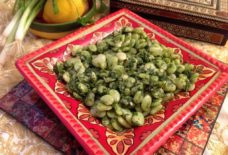Arab American Women Stand up to Change Their Representation in History Books
SOURCE: FAIRFAX COUNTY TIMES
BY: HANAN DAQQA
When women of any culture rise and raise their voices, you know that the whole community is going to rise. This is why I am excited about the latest outreach steps that the National Arab American Women’s Association (NAAWA) is taking.
Led by Jihan Andoni, Nada Kiblawi, Ghada Barakat, Mona Sadeq, Hanan Younes-Moore and others, the all-volunteer organization wants to change stereotypes about Arab American women by focusing on involvement, outreach and challenging barriers instead of complaining about them.
“We believe in engagement; it’s not a social club. It’s serious organization that gets us engaged with the American community, the educational system and the political system, and allows us to share our stories, to be involved and have a seat at the table. We want to fight to have a seat and a say,” said Andoni, who stepped down as president two weeks ago to lead another committee.
“We want to give a good example for other organizations of how democracy can be really done; a president is not a president forever. We need new people and the younger generations to get engaged. We all work as a team. I am now leading the educational outreach committee.”
Andoni has a long history of activism supporting women movements. She is also an active member of the International Women’s Forum- D.C. chapter. She holds a bachelor’s degree in Mathematics from Bethlehem University of Bethlehem, and a master’s degree in Information Systems from American University in Washington, D.C. She held several positions at the Center for Responsive Politics.
Representation and history books
The first steps made by the educational outreach committee were directed toward the representation of Middle Easterners in some public school history books. Ilham Nasser and Sirine Medani represented the committee at the Fairfax County Public Schools board meeting on Feb. 7.
Nasser was the first speaker. She started by introducing herself as an educator and teacher training specialist. “I spent 16 years of my life as a professional, as a professor teaching curriculum and instruction in social studies content to young children. I am also a mom; both of my children went to Fairfax County Public Schools and they lived through the misinformation and misperception about who they are as Arab American and Palestinian American citizens of our country, the United States,” said Nasser and shared one example: “In the textbook on World History (by MacGraw Hill), the opening sentence on page 871 states that ‘Much of the terrorism in the Middle East is aimed against the West.’ This statement is oversimplified, is inaccurate and is inciting Americans to be afraid of people from the Middle East. Most of the terrorism in the Middle East is against each other.”
It was a difficult journey for NAAWA members to find connections and information and to overcome barriers and intimidation before they reached the point where they could address their issues before the school board: “When we started, we were intimidated because we knew our words could be taken in another route. Even about the curriculum, you may be described as anti-Semitic, and for many of us the Israeli-Palestinian conflict is sensitive, right? So we need to be objective and look at the facts,” said Andoni.
After the presentation, Nasser said that she felt hopeful.
“I could see that they were all listening. This is probably a topic they don’t talk much about. They don’t have people to bring it to their attention. I am hoping that they will do this again so we can emphasize our demands…I think we can work in a way that is broad enough to make people aware, including our own community—most people don’t know about these inaccuracies in textbooks.”
“We have a big vision: we would like to have this educational outreach program not just in Fairfax County Public Schools. We would like to see it in every county in the United States,” added Andoni.
The next step
“We ask that FCPS students be given textbooks and supplemental learning materials that contain objective content on the Middle East, especially those that are based on the United Nations’ resolutions as a global entity.” This is one of the proposed future steps according to NAAWA’s document, “K-12 Textbook and Curriculum Regarding Middle East History and Politics.”
The organization started in 2015 and the educational outreach committee is their newest addition. NAAWA is membership based with an annual fee of $50. To become a member, you have to be a U.S. citizen and an Arab American or married to an Arab American.








